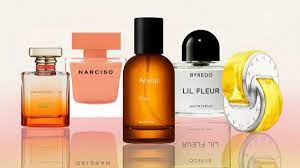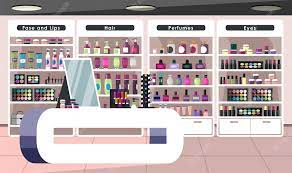
Are you looking for a lucrative business to start in Nigeria? If so, starting a cosmetics production business might be the perfect opportunity for you. With an increasing demand for cosmetics products in Nigeria, the potential for profit is high.
This blog post will walk you through the steps of starting a successful cosmetics production business in Nigeria, from the initial research to the marketing and sales stages. With the right knowledge and dedication, you can be well on your way to launching a successful cosmetics production business.
Understanding the cosmetics production business in Nigeria
The cosmetics industry is a booming one in Nigeria, with a growing demand for beauty and personal care products. According to Euromonitor International, the market size for cosmetics and personal care products in Nigeria is estimated to be worth over $2.5 billion by 2021. This presents a huge opportunity for entrepreneurs looking to venture into the cosmetics production business.
Cosmetics production involves the development, manufacture, and sale of beauty and personal care products, including skincare, haircare, makeup, and fragrances. It is a highly competitive industry, with a variety of products and brands available in the market.
To succeed in the cosmetics production business in Nigeria, it is important to have a clear understanding of the industry, its trends, and consumer preferences. Conducting market research and understanding the target market is crucial in developing a successful product that will meet the needs and preferences of Nigerian consumers.
Market research and feasibility study
Before starting a cosmetics production business in Nigeria, it is essential to conduct a thorough market research and feasibility study. This step will help you understand the current demand for cosmetics products in Nigeria, identify potential competitors, and assess the feasibility of your business idea.
Market research involves gathering information about the target market, such as consumer preferences, trends, and purchasing behavior. It is crucial to identify the specific segments of the cosmetics market that you will be targeting, whether it's skincare, haircare, makeup, or other niche areas. This will help you tailor your products and marketing strategies to meet the needs of your target audience.
Additionally, conducting a feasibility study will allow you to evaluate the economic viability of your business idea. You will need to analyze factors such as production costs, pricing strategies, potential profit margins, and the availability of raw materials. This study will help you determine whether your cosmetics production business has the potential to be profitable in the Nigerian market.
Market research and feasibility studies can be conducted through surveys, interviews, focus groups, and analysis of secondary data. It is also beneficial to seek the advice of industry experts, consultants, and potential customers during this phase. The insights gathered from these studies will inform your business decisions and enable you to develop a successful cosmetics production business in Nigeria.
Legal requirements for starting a cosmetics production business in Nigeria
Starting a cosmetics production business in Nigeria requires compliance with various legal requirements. Firstly, you need to register your business with the Corporate Affairs Commission (CAC) to obtain a Certificate of Incorporation. This process involves providing necessary documents such as your company's memorandum and articles of association, and payment of registration fees.
Next, you need to obtain the necessary permits and licenses from regulatory bodies such as the National Agency for Food and Drug Administration and Control (NAFDAC) and the Standard Organization of Nigeria (SON). NAFDAC regulates the production, importation, and distribution of cosmetics products in Nigeria, and you need to obtain their certification before you can operate legally.
Additionally, you need to comply with health and safety regulations, such as obtaining permits for your production facility, ensuring proper labeling of your products, and adhering to Good Manufacturing Practices (GMP) standards.
Furthermore, it is essential to have proper intellectual property protection for your cosmetic brand, including trademark registration to safeguard your brand identity.
It is advisable to consult with legal experts or seek guidance from professional business consultants who can assist you in understanding and meeting all the legal requirements to start and operate a cosmetics production business in Nigeria.
Business plan and funding options
After conducting thorough market research and identifying your niche in the cosmetics production business, it's time to create a business plan that outlines your strategies and objectives. This document will serve as a blueprint for your company and will help you attract potential investors or partners.
A well-written business plan should cover all aspects of the business, including market analysis, production process, marketing strategies, financial projections, and management structure.
When it comes to funding options, there are several sources to consider, such as personal savings, loans, grants, and investors. You can apply for loans from banks or microfinance institutions, but keep in mind that most financial institutions require collateral and have strict lending criteria.
Government agencies, such as the Small and Medium Enterprises Development Agency of Nigeria (SMEDAN), also offer grants and loans for entrepreneurs.
Alternatively, you can seek investors who are interested in your business idea and are willing to invest in exchange for a stake in the company. Whatever funding option you choose, make sure you have a solid business plan and financial projections to convince potential funders.
Product development and sourcing of raw materials
Product development is a crucial aspect of starting a cosmetics production business in Nigeria. This involves creating unique and high-quality products that will attract customers and set your brand apart from competitors. It is important to conduct thorough research on popular cosmetic products in the Nigerian market and identify gaps or areas where you can introduce innovative products.
Sourcing raw materials is another important step in the production process. It is essential to find reliable suppliers who can provide high-quality ingredients and materials for your cosmetics. This may include sourcing natural or organic ingredients, as well as packaging materials and containers. Consider working with local suppliers to support the Nigerian economy and ensure timely delivery of materials.
To ensure the quality and safety of your products, it is important to comply with relevant regulations and standards. Conduct thorough research on the regulations for cosmetics production in Nigeria and ensure that your raw materials meet these standards. This will not only ensure the safety of your customers but also protect your business from legal issues.
Additionally, consider establishing partnerships or collaborations with local farmers or producers who can provide raw materials sustainably. This can help to support local communities and create a positive image for your brand. Continuous research and development are also important to stay updated with the latest trends and customer preferences, allowing you to constantly improve and innovate your product line.
Production process and equipment needed
Once you have finalized your product development and sourced the necessary raw materials, it is time to focus on the production process and equipment needed for your cosmetics production business in Nigeria.
The production process will typically involve mixing and blending various ingredients to create your desired cosmetics products. This can be done either manually or using specialized machinery, depending on the scale of your operation. It is important to ensure that your production process adheres to strict hygiene and quality standards to ensure the safety of your products.
In terms of equipment, you will need basic tools such as measuring equipment, mixing containers, and packaging equipment. Additionally, depending on the specific products you plan to produce, you may need specialized equipment such as emulsifiers, mixers, and filling machines. It is essential to invest in high-quality equipment to ensure efficient and consistent production.
To minimize production costs, consider outsourcing certain aspects of the production process, such as labeling and packaging, to specialized contractors. This will allow you to focus on the core aspects of your business and allocate resources more effectively.
Regular maintenance and proper cleaning of your production equipment are also crucial to maintain product quality and prevent contamination. Invest in training your production staff to ensure they are knowledgeable about the production process and can operate the equipment effectively.
By implementing an efficient production process and investing in the necessary equipment, you will be well on your way to establishing a successful cosmetics production business in Nigeria.
Marketing and distribution strategies
Once your cosmetics products are ready for the market, it's time to promote and distribute them effectively to reach your target audience. You can leverage social media platforms such as Instagram and Facebook to create brand awareness and attract potential customers. Collaborating with beauty influencers and bloggers can also help you reach a wider audience.
In addition, you can also participate in beauty expos, trade shows, and events to showcase your products and network with potential distributors and retailers. Building relationships with these stakeholders can help you get your products on store shelves and increase your sales.
When it comes to distribution, you can consider selling directly to consumers through your website or through online marketplaces such as Jumia and Konga. You can also partner with wholesalers, retailers, and supermarkets to distribute your products to a wider market.
Finally, ensuring that your packaging is eye-catching and aesthetically pleasing can help you stand out on store shelves and increase your chances of making a sale. Keep in mind that your marketing and distribution strategies should be consistent with your brand's image and messaging.
Managing and growing the business in the Nigerian cosmetics industry
Once your cosmetics production business is up and running, the next step is to focus on managing and growing the business in the Nigerian cosmetics industry. Here are a few key steps to consider:
1. Build a strong brand: In the highly competitive cosmetics industry, having a strong brand is crucial. Develop a unique brand identity that resonates with your target market and communicates your values.
2. Stay up-to-date with industry trends: Keep track of emerging trends in the Nigerian cosmetics industry and be willing to adapt your products and marketing strategies accordingly.
3. Expand your product line: Once you've established your core product offerings, consider expanding your product line to cater to new customer segments or address gaps in the market.
4. Invest in marketing and advertising: Invest in marketing and advertising to increase brand visibility and attract new customers. Consider leveraging social media platforms to reach a wider audience.
5. Partner with influencers and retailers: Collaborate with influencers and retailers to increase brand awareness and reach a wider audience. Work with retailers to distribute your products through their stores or online platforms.
By implementing these strategies, you can effectively manage and grow your cosmetics production business in the Nigerian market.






















